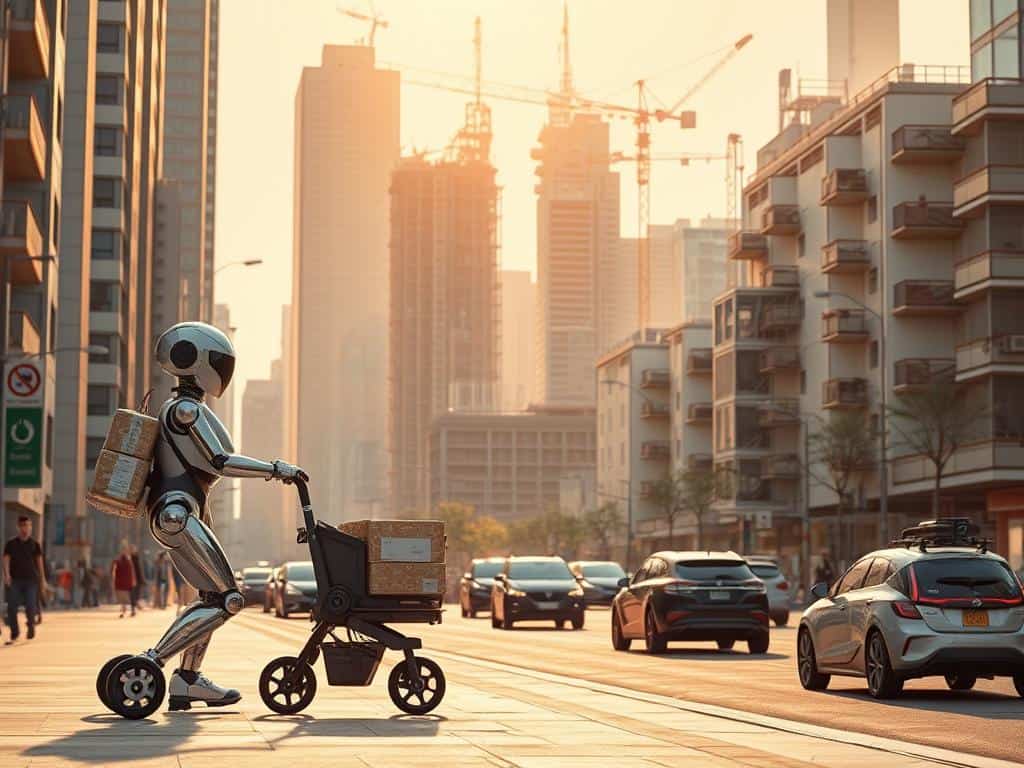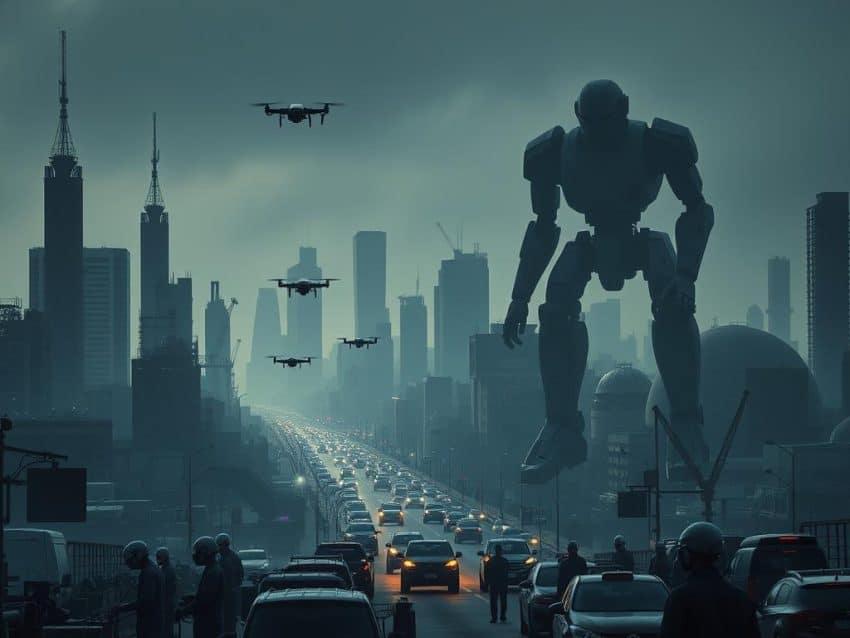Did you know that 30% of jobs could be automated by the mid-2030s? This is what PwC predicts. It shows how big of an impact robots and automation will have on us. Over 40 years, technology has made many jobs less valuable, hurting those without a college degree.
Artificial intelligence (AI) is getting better at doing things over and over. But it’s not as good at being creative or understanding emotions like humans are. This makes it hard for AI to take over all jobs.
The robotics revolution is changing our lives in big ways. It’s making things more efficient, but it might also make some jobs disappear. Companies like Google and Airbnb are already using more technology and fewer people. We need to think about both the good and bad sides of this change.
Let’s explore the world of robotics together. We’ll look at its importance, the challenges of automation, and how it’s changing the job market.
Key Takeaways
- 30% of jobs may be automated by the mid-2030s, showing a big change in work.
- AI does well with repetitive tasks but struggles with creative and emotional tasks.
- The job market is becoming more divided, like the “Player Piano” example, where jobs are scarce for many.
- Digitization could add $2.2 trillion to GDP but also lead to job losses.
- Companies are moving towards automation, with big names like Google needing fewer employees.
- Technology is now a big part of our daily work, showing how dependent we are on it.
The Impact of Automation on Daily Life
Automation has changed how we live and work. It uses AI and robots to do tasks that humans used to do. This change affects many areas of life, from cleaning our homes to running big factories.
Understanding Automation and Its Scope
Automation means using technology to do tasks without much human help. It’s not just for one industry. Robots help in making things and in healthcare, too. Even jobs that need computers are at risk.
Knowing how wide-reaching automation is helps us understand our future. It’s key to seeing how our lives will change.
Examples of Robots in Everyday Life
Robots are now a part of our daily lives. For example, robotic vacuum cleaners make cleaning easier. They let us have more time for ourselves.
AI assistants make our lives easier by doing tasks for us. They help with schedules and controlling our homes. Soon, robots might help even more people, like the elderly.

Robotics Revolution: How Robots are Reshaping the Job Market
Robots are changing many industries, leading to big talks about jobs. Some worry robots will take jobs away. But, there’s also hope for new job opportunities. We need to look at how robots are changing work and what skills we need.
Job Displacement vs. Job Creation
Many worry that robots will cause lots of job losses. But, research shows it’s not that simple. Robots make work more efficient in places like factories and hospitals. This means some jobs might go, but new ones will come.
Jobs like robot programming and repair are growing. These roles help balance out the loss of other jobs. It’s a mix of old and new jobs.
The Future Skills Needed in an Automated World
To succeed in the future, we need to learn new skills. Skills like talking well, working together, and solving problems are key. Being able to adapt and learn new tech is also important.
Getting hands-on experience with robots is very helpful. You can do this through projects or internships. Staying up-to-date with tech trends is also important. This way, you can be creative and solve problems, which robots can’t.
Conclusion
The robotics revolution is changing our world, big time. It’s making a huge impact in healthcare, elderly care, and disaster response. This change isn’t just about replacing people with machines. It’s about making us better at what we do.
Robots are making things more efficient and precise. This is true in surgeries, where it leads to better health and happiness for patients. It’s a game-changer.
But, we can’t ignore the ethics. Losing jobs is a big worry. It’s important to make sure AI is used right and that humans stay in control. We need to help workers learn new skills for this new world.
Robots are more than just tools for work. They help us solve big problems like disasters. With technology getting better, I believe we can find a good balance between tech and human life. This future looks bright.
